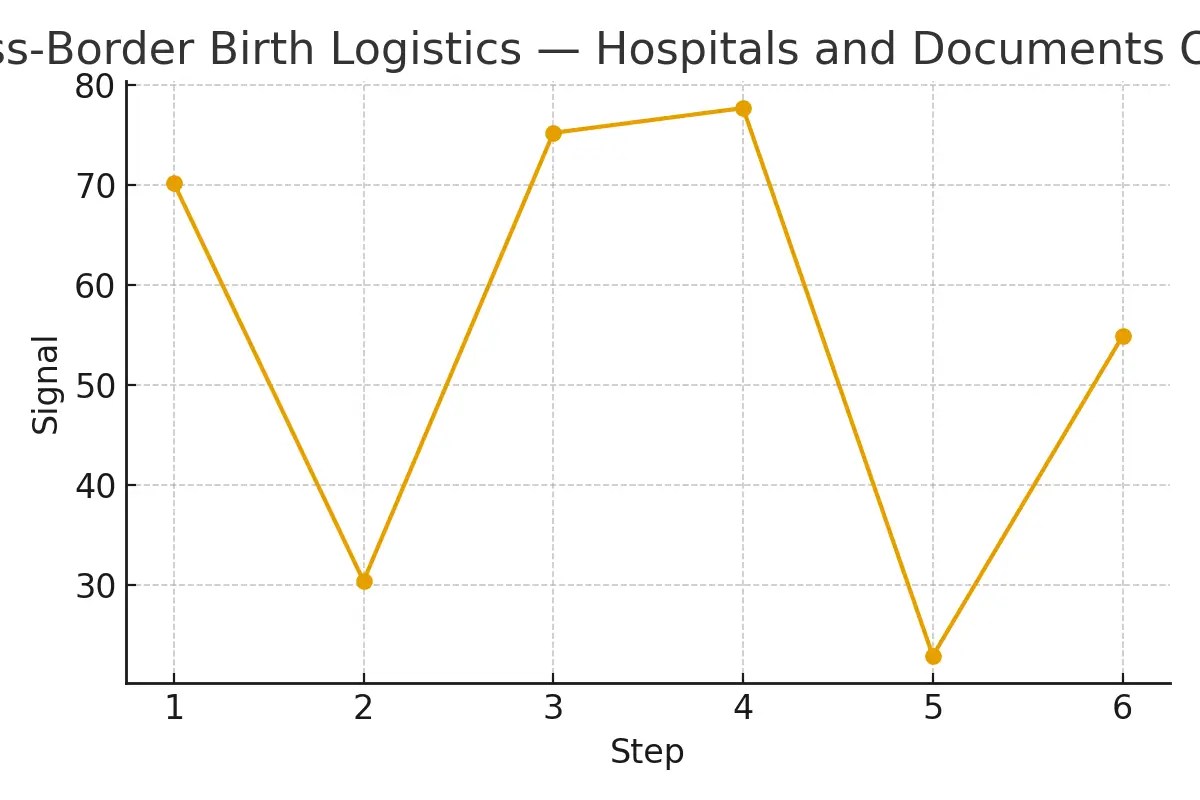
This article explains how LGBTQ+ families can navigate international birth logistics, including hospitals, legal documentation, and travel planning. It focuses on choices that impact outcomes, budgets, and timelines, so families can proceed with confidence and clarity.
What It Is
Cross-border birth logistics involve coordinating medical care, legal documents, and travel across countries. Planning ahead ensures smoother delivery, proper legal parentage, and reduced stress for all involved.
Who It Helps
- Good fit: Families pursuing surrogacy, donor conception, or adoption abroad who need hospital coordination and legal compliance.
- Alternative approach: Families with complex visa, citizenship, or medical constraints who may require a domestic plan or hybrid approach.
Step‑by‑Step
- Identify hospitals and clinics: Choose those experienced with international LGBTQ+ families.
- Check legal requirements: Ensure documents for parentage, citizenship, and birth registration are ready.
- Coordinate travel logistics: Plan flights, accommodation, and timelines around medical protocols.
- Synchronize with medical teams: Align hospital schedules, lab work, and medications.
- Maintain clear communication: Keep all teams (legal, medical, travel) informed to reduce risks.
Pros & Cons
Pros
- Access to specialized medical care
- Clear legal documentation for parentage and citizenship
- Structured timeline reduces surprises
Cons
- Higher costs due to travel and international hospital fees
- Complex coordination between teams
- Possible delays from visas, approvals, or local regulations
Costs & Logistics
- Medical costs: Hospital fees, prenatal care, delivery, and postnatal care.
- Legal costs: Birth certificates, parentage recognition, immigration, and notarization.
- Travel costs: Flights, accommodation, insurance, and local transport.
- Planning tips: Use line-item budgets, escrow accounts, and checklists to prevent surprise expenses.
What Improves Outcomes
- Early selection of hospitals and legal counsel
- Clear timeline with checkpoints for appointments, travel, and documentation
- Consistent communication between medical, legal, and travel teams
- Mental health support for parents during the international process
Case Study
A couple pursuing surrogacy in another country started planning six months ahead: they coordinated hospital bookings, ensured legal documents were pre-approved, and scheduled travel around medical appointments. Result: delivery on schedule, smooth parentage documentation, and minimal stress.
Mistakes to Avoid
- Waiting until the last minute for visas or travel documents
- Overlooking local hospital requirements or language barriers
- Failing to synchronize medical and legal timelines
- Ignoring postnatal legal steps for citizenship and parentage
FAQs
Q. How early should we start planning cross-border births?
Ans : Ideally 6–12 months before delivery. This allows enough time for hospital selection, legal documentation, and travel arrangements.
Q. What documents are essential for legal parentage?
Ans : Birth certificates, notarized surrogacy agreements, donor consents, and immigration papers for parent recognition and child citizenship.
Q. How do we choose the right hospital abroad?
Ans : Look for experience with international families, LGBTQ+ friendly policies, high-quality neonatal care, and clear communication channels.
Q. What are common travel pitfalls?
Ans : Visa delays, scheduling conflicts with medical appointments, and not accounting for postpartum recovery time.
Q. Can we reduce costs without compromising care?
Ans : Yes—by budgeting line items carefully, using escrow accounts for payments, and confirming all legal requirements in advance to avoid fines or emergency changes.
Next Steps
- Free 15-min nurse consult
- Upload labs for personalized recommendations
- Receive a cost breakdown for your cross-border birth plan
Cross-border birth planning ensures smooth delivery, legal security, and a confident family journey when approached strategically.
Related Links

Dr. Kulsoom Baloch
Dr. Kulsoom Baloch is a dedicated donor coordinator at Egg Donors, leveraging her extensive background in medicine and public health. She holds an MBBS from Ziauddin University, Pakistan, and an MPH from Hofstra University, New York. With three years of clinical experience at prominent hospitals in Karachi, Pakistan, Dr. Baloch has honed her skills in patient care and medical research.





